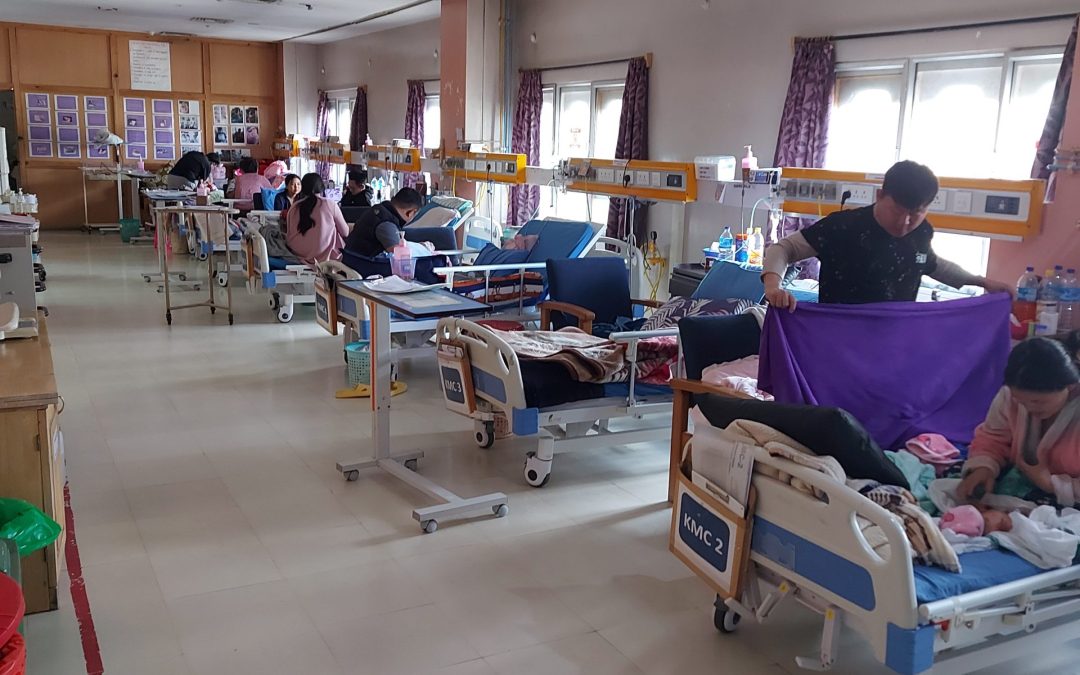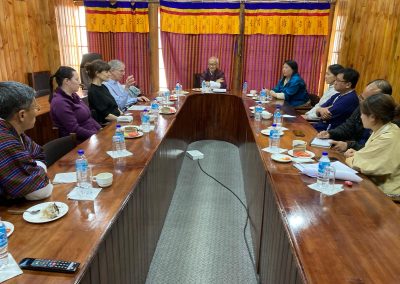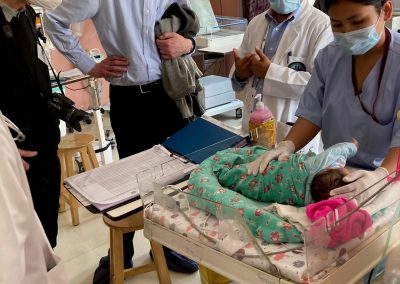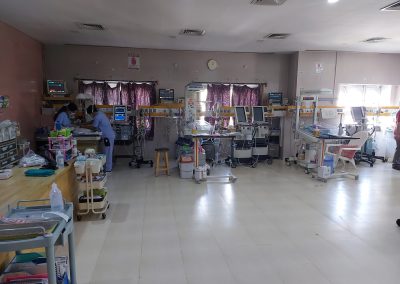Although sustainable social development, cultural promotion and environmental protection already play a major role in Bhutan, the country is still one of the least economically developed in the world. 60% of the population live from agriculture, and a high proportion of people are affected by poverty. Healthcare is limited, especially in rural areas; only the capital, Thimphu, has adequate treatment facilities. The country has only 350 doctors for its 780,000 inhabitants, 70 of whom are specialists; serious illnesses are usually treated in India.
Around 10,000 children are born in Bhutan every year. Although the state has made great progress in maternal and child health, the mortality rate for newborns remains at a consistently high level. The children’s hospital in Thimphu is relatively well equipped, but currently has no specialist doctors for treating sick newborns and premature babies. The lack of sufficiently trained personnel has a direct impact on infant and child mortality and leads to avoidable neurological sequelae, for the treatment of which the country lacks the infrastructure.

read more
A first exploratory trip in March 2023 and many constructive discussions and considerations with the senior physicians and responsible politicians on site were followed a year later by a further trip to Bhutan. The first goal of the partnership is defined as improving neonatal medicine by training and further educating medical and nursing professionals, in line with the WHO’s development goals (‘Born too soon’, WHO 2023). To this end, curricula are developed and implemented and theoretical knowledge as well as practical skills are taught. This is done in regular online events as well as in on-site visits, conducted by staff from the Charité Berlin and, depending on requirements, also by specialists from other disciplines and institutions.
ARCHEMED is also launching a training programme for Bhutanese doctors in the field of surgical paediatric urology to educate and train them in the treatment of complex paediatric urological cases. This is done through online courses, on-site visits and internships at German university hospitals such as the LMU.
Project management
Neonatology: Prof. Dr. Christoph Bührer, neonatologist, Berlin
Paediatric Urology: Dr. Regina Stredele, paediatric urologist, Munich




